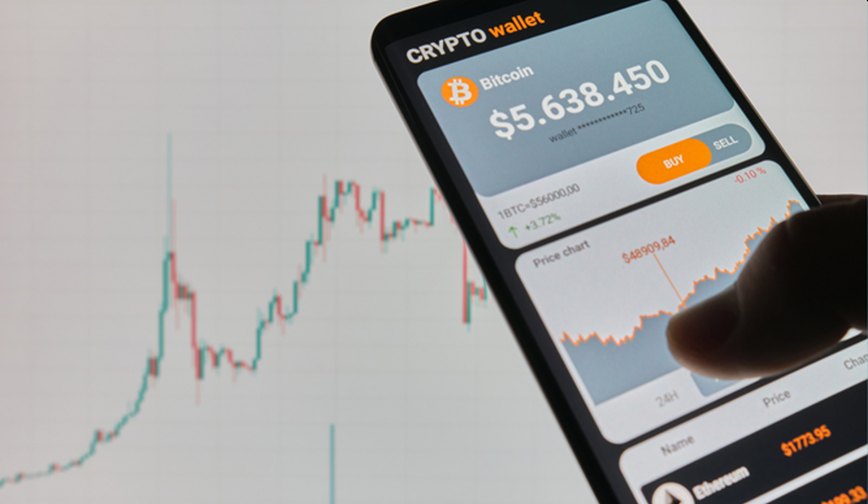Top 5 Most Secure Crypto Wallets to Use in 2023

We’ve come a long way from the earliest crypto wallets, with their difficult user interface, barebones features, and not-so-great security. In terms of sheer numbers, there are countless wallets ranging from hot and cold, standalone vs. platform integrated, minimalist to overpacked. It can be difficult too, trying to determine which wallets are the winners in terms of that best overall value, especially since new entrants are hitting the market and “older” (a year or more) wallets often go through significant evolution as they gain feedback and experience.
Let’s look at the currently top-rated wallets on the market so far in 2023. For this list, we will prioritize security, but will also include the overall value of the wallet’s features, such as user interface, ease of use, fees, compatibility, etc. We’ve selected two cold wallets and three hot wallets to include a variety of approaches to security. Because these are all excellent wallets, and each focus on a slightly different customer type, it would be difficult to rank them. Instead, we will focus on what makes them a great crypto wallet for 2023.
Ledger
The Ledger line of cold wallets has been around for a long time, with the company first established in 2014. Since that point, the team has released a number of cold wallets from the Nano, Nano X, Nano S Plus, and the Stax (as of now, couples can celebrate Valentine’s Day with matching Nano X wallets). Customers like Ledger for its reasonable prices, ranging from $79 to $150, and reviews often mention the easy-to-use interface. In terms of compatibility, the wallet can store over 5,500 tokens/coins, and has the ability to connect directly to a variety of software wallets. The key features that move beyond just storage are held on the wallet’s app called Ledger Live. Here customers can set up staking, buy/sell/swap, and other basic actions. The app doesn’t seem to be overflowing with features, but with a desktop and mobile version, it can enhance the value of the wallet for users. The company did experience a breach in 2020, which is never something wallet owners want to hear. The team replaced some members and has since made a number of changes to their security protocols, hopefully shoring up any weaknesses. The other complaint about Ledger is a seeming lack of technical support. It exists, but only in the form of online ticket submittals or browsing through the FAQs and hoping to find an answer.
Trezor
The other cold wallet on this list, Trezor has been another strong player in the market for some time. The price points of the Trezor wallets are comparable to Ledger, ranging from $69 for its Model One, to a bit pricier $219 for its Model T. The price difference represents a number of additional features on the Model T. It has a touchscreen vs. two buttons for the Model One; connection with USB-C instead of -A; offers support for slightly more coins/tokens (1,456 vs. 1,289); the ability to anonymize transactions; log in directly via the touchscreen (the One requires the use of a computer or phone); and additional security such as Advanced Shamir Backup and FIDO2 authentication. Users of Trezor appreciate the ability to perform a wide range of integrations with crypto firms. The app built for Trezor includes all the basic features you would expect, such as desktop/mobile versions, buy/sell/swap, sending and receiving, the ability to confirm all actions directly on the wallet, a status GUI to track various coins and assets, and a handful of educational resources. As with the Ledger, the fact that Trezor is a hardware wallet is extra secure. However, even with software integrations and easy-to-use apps, there is a cost in the form of convenience, so hardware wallets are not for everyone.
Coinbase Wallet
The Coinbase Wallet makes the list as it is a very popular wallet that is one part of a much larger platform. Coinbase is a leading exchange that prides itself in rich features for experienced traders, but many features that appeal to those new to crypto. The wallet is non-custodial; it uses hot storage (it is connected to the larger network) so it will not be as secure as a hardware wallet, but offers much more convenience. For those who want the best of both worlds, Coinbase allows hardware compatibility with Ledger wallets. The wallet claims to offer support for hundreds of thousands of assets, so it should be incredibly rare to find a token that can’t be used with the Coinbase Wallet. That said, users can only use Bitcoin if they are using the wallet’s mobile app. It’s unclear the reason for this or if the platform has plans to expand its compatibility. In terms of features, the Coinbase Wallet has a distinct advantage simply because it is natively tied to Coinbase, which itself is feature-rich for trading. As they are larger, the number of coins and tokens available to buy, sell, or swap is comprehensive. The wallet can also tie itself to a number of decentralized exchanges, including 1inch, Sushiswap, and Uniswap.
Klever Wallet
The wallet from Klever has a number of unique features not seen in the other wallets on this list. It does however contain most of the valuable features shared by the other top wallets. Like Coinbase, the Klever Wallet is a non-custodial, hot storage wallet. However, rather than teaming with another platform, Klever has developed its own integrated hardware wallet called the KleverSafe. Since it is native, the platform is able to efficiently coordinate actions between the hardware and software to optimize performance, security, and ease of use. The wallet offers buying (including buying crypto with a credit card directly in the app), selling, swapping, sending/receiving, as well as staking and analysis. The platform’s users have called out the especially crisp user interface, which helps both experienced and newer users get the information they need quickly. The platform has made compatibility a priority, allowing users to integrate with a number of different Dapps, but also to make use of Klever’s native Web3 marketplace. To encourage growth, the platform offers rewards to users who refer others to the app. This reward is in the form of a swap fee percentage for all referrals, which gives the incentive to bring others to the platform. Finally, Klever has decided to offer 24/7 customer support even though that is not an expectation for crypto platforms.
Exodus Crypto Wallet
Like the others on this list, Exodus offers several unique features while generally supporting those shared features that matter most to customers. It too offers 24/7 support, and like Coinbase, it has teamed with a hardware wallet (Trezor rather than Ledger) to offer a more comprehensive solution. The wallet is hot storage, non-custodial, and has different facets. It offers a focus on Web3 Dapps (with the ability to turn Chrome into a Web3 browser), as well as both mobile and desktop versions that can sync up. Users can buy, sell, swap, and send/receive, but unlike the other wallets, Exodus only supports 260+ assets. Granted, for most people, this should still be fine as the assets are the most popular, though, for those trading in obscure tokens, this might not be compatible. The user interface is good, though minimalist, though one could argue that Klever’s interface, and possibly also Coinbase, are slightly better. All in all, though, Exodus provides a quality wallet with all the key features.
Wrapping Up
2023 will undoubtedly reveal new entrants to the crypto wallet market. We will see how they match up with the current top wallets, but when it comes to feature-rich design and proven security, experience is a plus. The five wallets explored here have something to offer any discerning crypto enthusiast, and have already created millions of satisfied customers.




